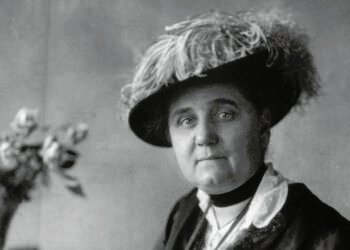Have you ever considered that the person serving your meal might be struggling to afford their own?
This question lies at the heart of Saru Jayaraman’s life work. She is a powerful voice for change in the United States restaurant industry.
After the tragic events of September 11, this attorney from Los Angeles co-founded Restaurant Opportunities Centers United. She later established One Fair Wage to fight for better pay and working conditions.
Her books and research have exposed what happens behind kitchen doors across America. Her efforts have earned prestigious awards and transformed countless lives.
This article explores her journey from Yale Law School to becoming a national leader in the food labor movement.
Key Takeaways
- Saru Jayaraman is a leading advocate for restaurant workers’ rights in the United States
- She co-founded ROC United after 9/11 to support affected food service employees
- She established One Fair Wage to fight for better pay and working conditions
- Her research and books have exposed industry practices behind kitchen doors
- She has received significant recognition including the Ashoka and Soros fellowships
- Her work has created meaningful change in the restaurant industry nationwide
- She continues to be a powerful voice for social justice and fair wages
Early Life and Education of Saru Jayaraman
Long before she became a national voice for workers, her journey began in Southern California. The experiences of her youth would shape her future path in powerful ways.
Childhood in Whittier, California
Growing up in a predominantly Hispanic neighborhood, she learned about diversity early. Her parents had emigrated from India seeking opportunity in the United States.
Her father worked as a software engineer in the Los Angeles area. When he lost his job during her teenage years, financial struggles became real.
The family faced racial discrimination that left lasting impressions. During a road trip through Utah, mechanics refused to service their broken-down car.
These experiences taught her about class and race in America. They planted seeds for her future work in social justice.

Higher Education at UCLA and Yale
She excelled academically at the University of California, Los Angeles. Graduating summa cum laude in 1995, she earned degrees in International Development Studies and Political Science.
Her education continued at Yale Law School and Harvard Kennedy School. This advanced training prepared her for legal advocacy work.
In 2000, she gained admission to both the California and New York State Bars. This legal foundation would prove crucial for her future activism.
Influences and Early Activism
At Yale, she studied under Jennifer Gordon, a MacArthur Fellowship winner. Gordon’s organization, the Workplace Project, focused on helping immigrant workers.
There, she trained Latino immigrants to advocate against labor abuse. This hands-on experience with workplace injustice shaped her approach.
Even earlier, in 1992, she founded Women and Youth Supporting Each Other. This nonprofit empowered young women through mentorship and community support.
President Bill Clinton recognized this work during a commencement speech. He praised the organization as representing “America at its best.”
These early experiences in education and activism built the foundation. They prepared her for the significant food labor movement work ahead.
Founding ROC United and One Fair Wage
The September 11 attacks created a crisis for thousands of food service employees. Workers from the World Trade Center’s Windows on the World restaurant lost their jobs overnight.
This attorney partnered with Fekkak Mamdouh, a former Windows server. Together they founded the Restaurant Opportunities Center of New York.
The organization initially focused on helping displaced workers from the tragedy. It quickly expanded to support immigrant restaurant workers throughout New York City.
Response to 9/11 and Windows on the World
The World Trade Center attack left food service workers without income or support. Windows on the World employed many immigrants who suddenly faced unemployment.
ROC New York provided critical assistance to these workers. It offered job placement services and legal support for workplace issues.
What began as disaster relief soon transformed into a broader movement. The organization started addressing systemic issues affecting restaurant workers.
Expansion into a National Movement
By 2007, the local effort grew into Restaurant Opportunities Centers United. This national organization now represents over 18,000 members across 15 states.
ROC United fights for workplace justice and fair wages nationwide. The organization has recovered more than $10 million in stolen wages for workers.
It campaigns for better working conditions and protects worker rights through legal action. The group also educates employees about their rights in the restaurant industry.
Campaign to End Subminimum Wage
The United States maintains a two-tier minimum wage system. Tipped workers earn just $2.13 per hour while others receive $7.25.
One Fair Wage seeks to eliminate this unequal pay structure. Seven states have already enacted legislation ensuring all workers earn full minimum wage plus tips.
During the COVID-19 pandemic, the emergency fund raised $22 million for service workers. The Biden-Harris administration later endorsed ending subminimum wage nationwide.
ROC United also helped pass Washington’s Accrued Sick and Safe Leave Act. This ensures workers accumulate sick leave from their first day on the job.
Key Initiatives and Research Contributions
Beyond direct advocacy, this leader developed powerful tools for systemic change. Her initiatives combine research, business partnerships, and consumer engagement to transform the industry.
These programs address restaurant challenges from multiple angles. They create sustainable models that benefit workers and owners alike.
Food Labor Research Center at UC Berkeley
In 2012, she established the first academic center studying food and labor relationships. The Food Labor Research Center at University of California produces peer-reviewed studies on restaurant economics.
Their research demonstrates how fair practices boost profitability. Studies show earned sick days reduce turnover costs and increase productivity.
This academic backing strengthens advocacy efforts nationwide. The center partners with universities across the United States to expand its impact.

High Road Employer Partnerships
ROC United collaborates with approximately 70 restaurant owners who prove better working conditions improve profitability. These partnerships demonstrate that fair treatment helps businesses succeed.
The organization operates worker-owned COLORS restaurants to test innovative practices. These spaces provide hands-on understanding of ownership challenges.
When research revealed racial discrimination patterns, they created workforce development programs. These initiatives promote upward mobility for women, immigrants, and people of color.
Cultural sensitivity training helps management teams implement inclusive hiring practices. The goal replaces appearance-based hiring with formal career ladders.
Restaurant Industry Roundtables offer technical assistance and mutual support. Employers share best practices and advocate for worker-friendly policies.
Engaged Eater’s Table and Consumer Advocacy
This strategist aligned with the sustainable food movement to expand her impact. She recognized how consumer awareness drives industry transformation.
Her book Behind the Kitchen Door exposed restaurant worker conditions to mainstream audiences. Actor Danny Glover acquired rights for film adaptations.
The Engaged Eater’s Table mobilizes consumers through education and action. Members receive discounts at establishments implementing fair practices.
Their Diner’s Guide app rates employment practices at 150 popular restaurant chains. This free tool helps consumers support businesses with ethical standards.
Partnerships with organizations like Slow Food USA integrate worker rights into ethical eating conversations. This comprehensive approach creates change through research, collaboration, and consumer power.
Awards, Recognition, and Published Works
Her tireless advocacy has earned national recognition and prestigious honors. These awards validate her decades of work fighting for restaurant workers’ rights.
Her published books have brought hidden industry practices into public view. They combine rigorous research with powerful storytelling to drive change.
Major Honors and Media Appearances
In 2019, the San Francisco Chronicle named her Visionary of the Year. CNN included her in their Top 10 Visionary Women list that same year.
The Obama administration honored her as a White House Champion of Change in 2014. This recognition highlighted her impact on workplace justice nationwide.
New York City media frequently celebrated her influence. She appeared in Crain’s “40 Under 40” and New York Magazine’s “Influentials” list.
Her television appearances spread her message to millions of viewers. She spoke on CNN, PBS, MSNBC, HBO’s Real Time with Bill Maher, and NBC News programs.
Additional honors include the Prime Movers Award and Immigrant Leadership Award. Mayor Michael Bloomberg presented the latter for her work in New York City.
Author of Influential Books on Food Labor
Her first book, The New Urban Immigrant Workforce, debuted in 2005. It explored modern labor organizing through workers’ experiences in New York.
Behind the Kitchen Door arrived in 2013 to critical acclaim. This expose revealed sexism, racism, and abuse within restaurant kitchens.
Forked: A New Standard for American Dining followed in 2016. It examined employment practices across dining establishments from luxury to fast-food.
One Fair Wage: Ending Subminimum Pay in America completed her quartet in 2021. This work directly supported her campaign to eliminate tipped minimum wage.
James Beard Foundation and White House Recognition
The James Beard Foundation awarded her their Leadership Award in 2015. This honor placed her among food industry visionaries changing American dining.
Her influence extended to Hollywood’s Time’s Up movement against harassment. She attended the 2018 Golden Globes with actress Amy Poehler as part of this action.
The National Women’s History Project named her a 2018 honoree. This recognition celebrated her impact during Women’s History Month across the United States.
Fellowships from Yale, Harvard, and UCLA supported her academic research. These institutions recognized her innovative approach to food labor studies.
Together, these honors establish her as the leading voice for restaurant workers. They demonstrate how her advocacy has transformed industry standards nationwide.
Conclusion
What began as a response to tragedy in New York City has grown into a national transformation of food service work. Saru Jayaraman’s decades-long commitment has reshaped how America thinks about restaurant workers’ rights.
Her work established critical institutions like the Food Labor Research Center and powerful campaigns for One Fair Wage. These efforts have improved working conditions and wages for thousands across the United States.
Recognition from the James Beard Foundation and national media spotlight her impact. The movement continues pushing for fair treatment in every dining establishment.
Saru Jayaraman’s legacy proves that dedicated advocacy can create meaningful change. Her work inspires ongoing action toward equity in the restaurant industry.
FAQ
What is the Restaurant Opportunities Centers United?
The Restaurant Opportunities Centers United (ROC United) is a national nonprofit organization co-founded by Saru Jayaraman. It fights to improve wages and working conditions for restaurant workers across the United States through advocacy, research, and workplace justice campaigns.
What is the subminimum wage for tipped workers?
The subminimum wage is a federal law allowing employers to pay tipped workers, like servers and bartenders, a base wage as low as .13 per hour. The expectation is that customer tips will bring their total earnings up to the standard minimum wage. This system creates significant income instability and high rates of poverty.
What is the One Fair Wage campaign?
One Fair Wage is a major national campaign led by Saru Jayaraman and ROC United. Its goal is to eliminate the subminimum wage for tipped workers and ensure all employees receive a full, fair minimum wage with tips on top, providing a stable and livable income.
How did the September 11th attacks influence Saru Jayaraman’s work?
After the World Trade Center attacks, Jayaraman helped organize displaced workers from the Windows on the World restaurant. This effort revealed the widespread exploitation and poor conditions in the industry, which directly led to the founding of the Restaurant Opportunities Center of New York, the precursor to ROC United.
What kind of research does the Food Labor Research Center conduct?
Based at the University of California, Berkeley, the Food Labor Research Center produces critical studies on wages, working conditions, and racial and gender inequity within the food system. This research provides the data needed to advocate for policy changes and fairer industry standards.
What awards has Saru Jayaraman received for her work?
Jayaraman has received numerous honors, including a prestigious James Beard Foundation Award for her books and advocacy. She has also been recognized by the White House and was named one of Time magazine’s 100 Most Influential People in 2022.
How can consumers support fair wages for restaurant workers?
Consumers can support the movement by dining at High Road Restaurants that commit to fair wages and good practices. They can also join ROC United’s “Diner’s Guide” and “Engaged Eater’s Table” initiatives to stay informed and use their spending power to advocate for change.





